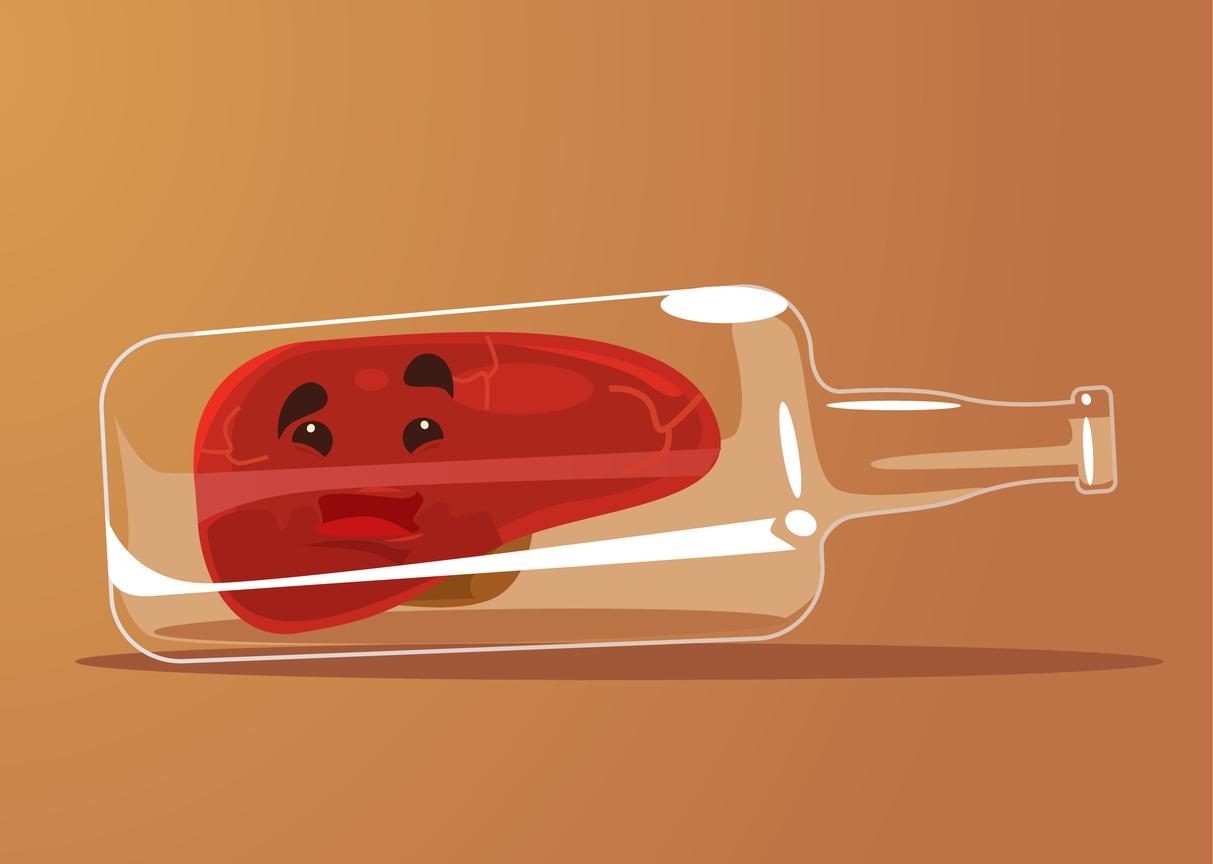Consuming between one and two alcoholic beverages a day would calm stress signals in the brain and calm the heart rate.

- Moderate alcohol consumption reduces the risk of cardiac events by 20% compared to very little or no consumption.
- Too much alcohol consumption increases stress and heart risks.
- Moderate amounts of alcohol can have effects on the brain that help to relax, reduce stress levels and the incidence of cardiovascular disease.
Beware of alcohol abuse which is very bad for your health. Consumed in moderation, however, alcohol could have unexpected benefits against stress, as revealed by a study presented on the occasion of the 70th annual scientific session of theAmerican College of Cardiology. Led by a team of researchers from Massachusetts General Hospital (MGH), the aim is not to encourage consumption but rather to exploit this mechanism to develop new anti-stress therapies while avoiding the risks associated with ‘alcohol. Researchers define moderate drinking as one alcoholic drink for women and two for men per day.
The brain-heart axis
Research suggests, and it is the first to do so, that moderate alcohol consumption may, in part, be protective for the heart by reducing stress-related signals in the brain. “We found that stress-related brain activity is higher in non-drinkers than in people who drank moderately, while people who drank excessively (more than 14 drinks per week) had the highest level of activity stress-related brainsaid Kenechukwu Mezue, MGH cardiology researcher and lead author of the study.
In this study, the researchers highlighted the benefits of alcohol, consumed in moderation, on the brain-heart axis. “The idea is that moderate amounts of alcohol can have effects on the brain that can help you relax, reduce stress levels and, perhaps through these mechanisms, reduce the incidence of cardiovascular disease.”, believes Kenechukwu Mezue. The latter warns against shortcuts that could be done too quickly to justify the consumption of alcohol. “Alcohol has several significant side effects, including an increased risk of cancer, liver damage, and addiction, so other interventions with better side effect profiles that beneficially impact the brain-heart axis are required”, he adds.
A 20% reduced risk of a major cardiac event
The researchers analyzed data from the Mass General Brigham Biobank health care survey bringing together 53,064 participants, aged 57 on average. The latter were classified into three groups according to their alcohol consumption: low (between 0 and 1 drink per week), moderate (between 1 and 14 drinks per week) or high (more than 14 drinks per week). The researchers then identified major cardiovascular events, including heart attacks, strokes or associated hospitalizations. Of the participants, 752 volunteers also had scans that allowed researchers to objectively measure activity in areas of the brain known to be involved in stress, such as the amygdala and frontal cortex.
The results revealed that 15% of the participants suffered a major cardiovascular event. Among them, 17% were in the low drinking group and 13% in the moderate drinking group. The analyzes also suggested that participants reporting moderate alcohol consumption had a 20% reduced risk of a major cardiac event compared to those with low alcohol consumption. In addition, these volunteers showed lower stress-related brain activity. These results were confirmed after taking into account other factors such as demographic and socio-economic variables, cardiovascular risk factors and psychological factors.
.
















